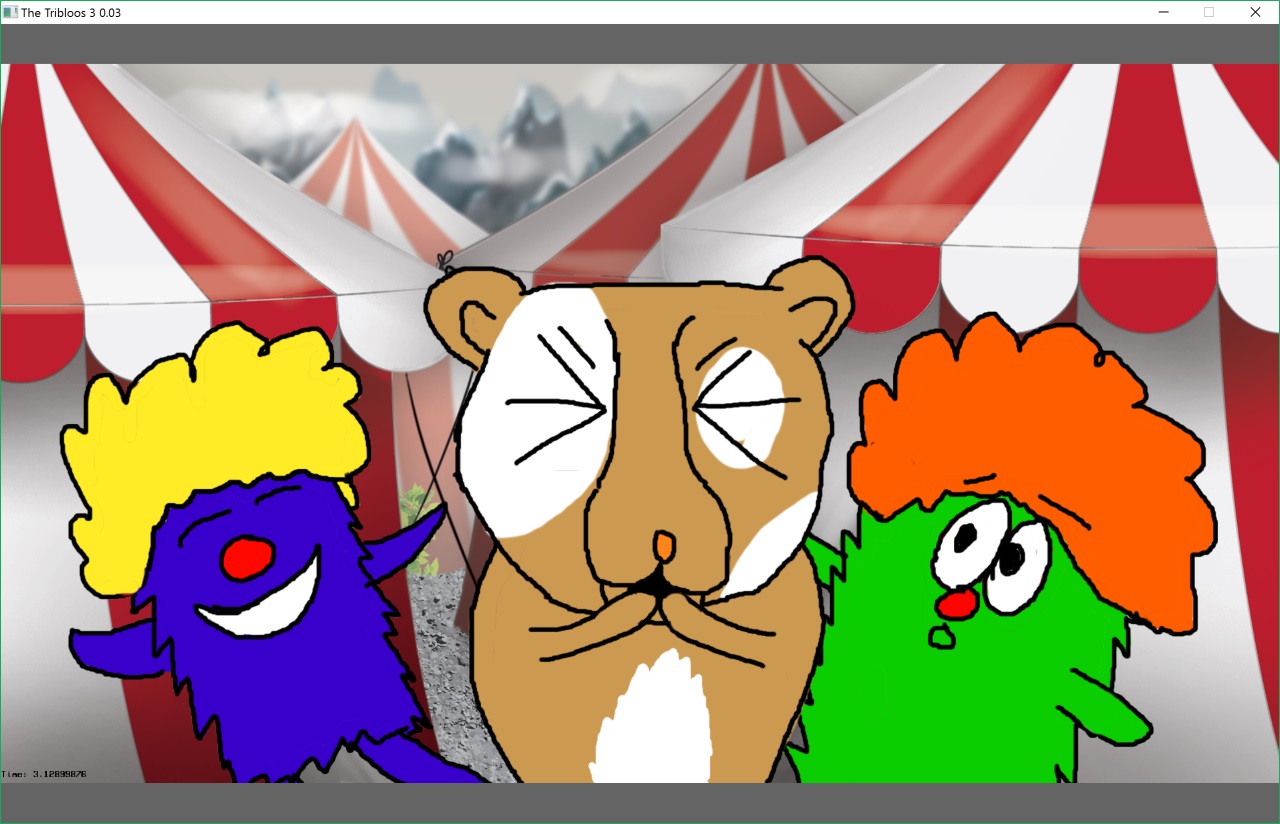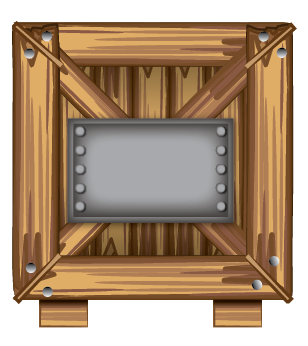 Tribloos 3 is currently being checked out in intimate detail by Big Fish at the moment. I’m working on a new project as well as adding some final touches and prepping for marketing. So I thought I would take this time to share some of my personal thoughts on why I like writing Tribloos games.
Tribloos 3 is currently being checked out in intimate detail by Big Fish at the moment. I’m working on a new project as well as adding some final touches and prepping for marketing. So I thought I would take this time to share some of my personal thoughts on why I like writing Tribloos games.
I’ve spent about 3 years on Tribloos 3. That might seem like a lot, but in actual terms it’s probably only been about 4 months full time work for me. Someone asked me, about half way through development, why hadn’t I just re-skinned and expanded the Tribloos 2 engine. Why had I started almost from scratch again? It’s a good question, I think. I’m biased of course, but I thought perhaps others might want to know why too. So here it is, why I like writing Tribloos Games.
It’s 2014 and…
Space Farmers had been out for 4 months. We’d been working on it in the meantime, adding new levels and gadgets and other fun stuff. But despite various cool things happening (such as it being played by PewDiePie) it hadn’t performed financially as well as we would have liked. That’s quite depressing really, can you imagine what it’s like to have you game featured in a video that has had over 2 million views and your distributor reports back that it’s resulted in a grand total of…30 extra copies?
Yes that’s right, YouTube marketing officially doesn’t work, you heard it here. Okay that’s a big bold statement which begs to be explored. So more on that another time I think.
However we were a little dispondent about creating another game. I decided to take a step back and start work on a new Tribloos title. It’ll only take 6 months, I convinced myself.
But this time I want animations!
I’m torn about this statement. On one hand I’m pretty pleased with the animatics that are in Tribloos 3. I think they look awesome and add some depth to the world and the story. On the other hand they took absolutely forever to make.

It’s no surprise really but I’d made up my mind to focus on making my near-perfect Tribloos game.
That meant I couldn’t simply recycle all the old code from the second game. I had to attack the weak areas of that and build on the good bits. The good bits were, for me and many fans of the series, the characters and the “gotta get gold time!” gameplay. I decided I wanted to add some more intelligence to the workers. This in turn would lead to more possibilities in the engine and what you could do in the game.
I quickly sat down and started writing out a plot for the game based on an idea I’d had at the end of developing number 2. The gist being that one of the Tribloos gets “Tribb-napped” (oh how I lolled) and you have to rescue them. This led to a whole host of new area ideas as the remaining Tribloos could split up and go after them.
They could split up!?
That meant there were going to be sections of the game where you could legitimately play various areas at the same time. So after completing the first area you’d be let loose on areas 2, 3 and 4. After completing all of those you could attempt 5, 6, 7 and 8! 9 And 10 would be in order but I was still pretty pleased with this idea. And it’s stuck until the end.
The challenge here has been to implement a “what happens now” function at the end of each area. If you’re playing the game from start to end then it should be smart enough to pick the next area for you.
That’s something I’ve only had to worry about recently now I’m in the end stages of development. I always enjoy doing the story based stuff when writing tribloos games! Not that I didn’t enjoy adding the 30+ functional buildings to the game.
How much did you say?
Ah ok, here are some statistics for you:
Tribloos 2 had:
20 Building Types
9 Obstacle Types
80 Campaign Levels
5 Environments
Tribloos 3 has:
35 Building Types
24 Obstacle Types
100 Campaign Levels
10 Environments
Now because there are more environments there are fewer levels per environment than before. This has been an advantage because I’ve been able to keep them more interesting progression wise than the previous game. But as you can see this new game is absolutely packed to the brim of new buildings and obstacles.
So, why do you keep writing Tribloos Games?
It’s 3 years well spent. I’ve been full time contracting, moved house, met many new friends, lost old friends and brought a new baby girl into the world. It’s been a roller coaster ride and the Tribbs have been right there with me.
When I first started submitting games to BigFishGames back in the late 2000’s I had some really great feedback from the guys there. I submitted a couple of games. One was a tetris like block building game. The other was a sokoban clone – although I maintain to this day I’d never seen Sokoban before writing it!
The Tribloos are a special bunch for me. It was my first game series to sell several thousand copies, sure, but the big thing was this: People really seemed to like it. I got even better feedback on the second game. The bigger question is why did I stop?
Uhm, so why did you stop?
I attempted to push The Tribloos 2 onto mobile users a few years ago (2013) and it flopped. F2P had just started to strangle the mobile market and I, like many other game devs of that time, fell foul of it. We had no interest in fleecing people for in game items that could be used only once or for cheats to make levels easier. And so our games fell by the wayside…
However I always knew I wanted to make another Tribloos game. I think this one will do pretty well, it’s definitely by far the best game in the series so far. I don’t plan to stop here either. As long as people enjoy them I’ll continue to write Tribloos Games til the end of my development days!



